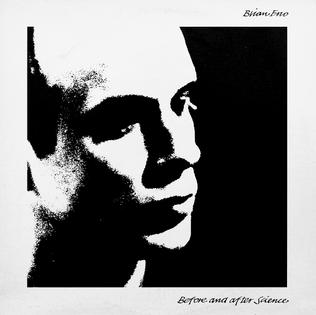
Before and After Science is the fifth solo studio album by English musician Brian Eno, originally released by Polydor Records in December 1977 in the United Kingdom and by Island U.S. soon after. Produced by Eno and Rhett Davies, it is the first of Eno's popular music works to be published under his full name.

Cluster & Eno is a collaborative album by German electronic music group Cluster and English ambient musician Brian Eno. The style of this album is a collection of gentle melodies: a mixture of Eno's ambient sensibilities and Cluster's avant-garde style.
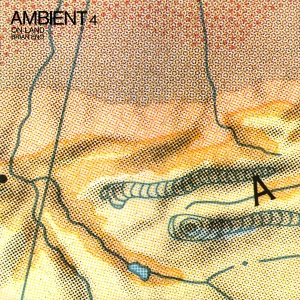
Ambient 4: On Land is the eighth solo studio album by Brian Eno, released in March 1982 by EG Records. It was the final edition in Eno's Ambient series, which began in 1978 with Ambient 1: Music for Airports. The album was released to critical acclaim, and is recognised along with its predecessors as a landmark album in the history of the ambient genre.

June 1, 1974 is a live album of songs performed at the Rainbow Theatre in London on the titular date. The album is officially attributed to all principal performers Kevin Ayers, John Cale, Brian Eno and Nico, although other well-known musicians, including Mike Oldfield, Robert Wyatt, and Ollie Halsall, also contributed to the concert. The record has often been referred to as the "A.C.N.E." album, for the initials of Ayers, Cale, Nico, and Eno.
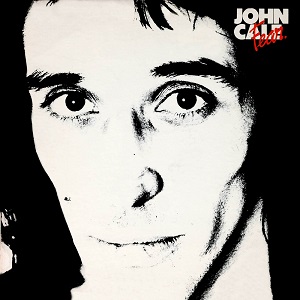
Fear is the fourth solo studio album by the Welsh rock musician John Cale, released on 1 October 1974 by Island Records.

Cluster were a German musical duo consisting of Hans-Joachim Roedelius and Dieter Moebius, formed in 1971 and associated with West Germany's krautrock and kosmische music scenes. Born from the earlier Berlin-based group Kluster, they relocated in 1971 into the countryside village of Forst, Lower Saxony, where they built a studio and collaborated with musicians such as Conny Plank, Brian Eno, and Michael Rother; with the latter, they formed the influential side-project Harmonia. After first disbanding in 1981, Cluster reunited several times: from 1989 to 1997, and from 2007 to 2010.

Harmonia was a West German musical "supergroup" formed in 1973 as a collaboration between members of two prominent krautrock bands: Cluster's Hans-Joachim Roedelius and Dieter Moebius joined by Neu! guitarist Michael Rother. Living and recording in the rural village of Forst, the trio released two albums—Musik von Harmonia (1974) and Deluxe (1975)—to limited sales before dissolving in 1976. AllMusic described the group as "one of the most legendary in the entire krautrock/kosmische scene."
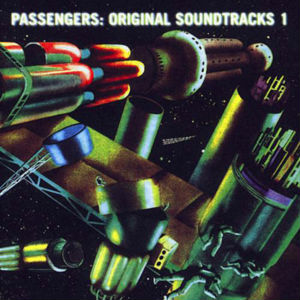
Original Soundtracks 1 is a studio album recorded by rock band U2 and Brian Eno under the pseudonym Passengers as a side project. Released on 6 November 1995, the album is a collection of songs written for mostly imaginary films. Owing to Eno's involvement as a full songwriting partner and the album's experimental nature, the moniker "Passengers" was chosen to distinguish it from U2's conventional albums. It was commercially unnoticed by the band's standards and received generally mixed reviews. Guest musicians on the record included Italian opera singer Luciano Pavarotti and producer Howie B, who would co-produce U2's following album, Pop (1997).
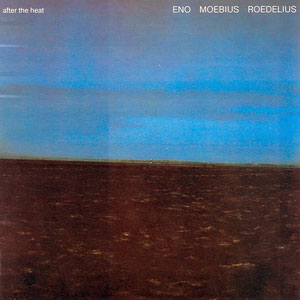
After the Heat is a 1978 album by Brian Eno, Dieter Moebius and Hans-Joachim Roedelius, credited to "Eno Moebius Roedelius". The album represents the second collaboration by the trio, the first being 1977's Cluster & Eno. As with the previous album, After the Heat was created in collaboration with the influential krautrock producer Conny Plank.
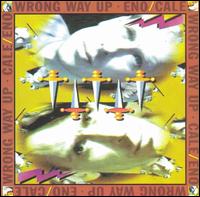
Wrong Way Up is the sole collaborative studio album by Brian Eno and John Cale, originally released on October 5, 1990 on Opal and Warner Bros. Records. The album sits between the electronic, prog-rock and art rock genres and features some of both Eno and Cale's most mainstream work.

Slow Dazzle is the fifth solo studio album by the Welsh rock musician John Cale, released on 25 March 1975, his second album for record label Island.

Nerve Net is the eleventh solo studio album by Brian Eno, released on 1 September 1992 on Opal and Warner Bros. Records. It marked a return to more rock-oriented material, mixed with heavily syncopated rhythms, experimental electronic compositions and occasional elements of jazz. The ambient sensibility is still present on several tracks, though it is often darker and moodier than the pieces Eno is best known for.
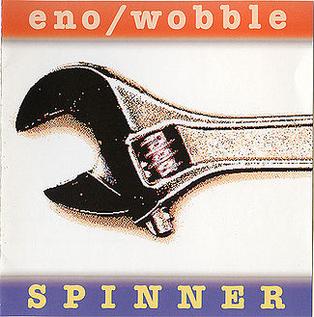
Spinner is an instrumental album by British musicians Brian Eno and Jah Wobble, released in 1995.

The Million Dollar Hotel: Music from the Motion Picture is the soundtrack to the 2000 film The Million Dollar Hotel. The album was released alongside the film in March 2000, and featured Bono as its executive producer, with new music from U2 and other artists.
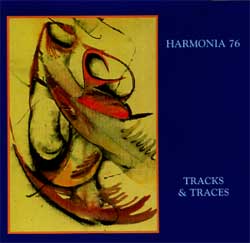
Tracks and Traces is a collaborative album by German kosmische supergroup Harmonia and British musician Brian Eno, initially credited to Harmonia 76. Eno joined the group at Harmonia's studio in Forst, Germany for the September 1976 recording sessions.

Durch die Wüste is the first full-length solo album by German keyboardist Hans-Joachim Roedelius, best known for his work with Cluster, Harmonia, and Aquarello. The title is German for "Through the Desert."

The Visitation is the debut studio album by American rock band Chrome. It was released in 1976 by Siren Records. In 2014, the album was re-released by Cleopatra Records with additional bonus tracks.

High Life is the second collaboration between Brian Eno and Karl Hyde, of British electronic group Underworld. The album follows Someday World and was released on 30 June 2014.

Someday World is a collaboration album by British musician Brian Eno and Karl Hyde, of British electronic group Underworld, released on 5 May 2014. The album features a number of supporting musicians, including Coldplay's Will Champion, John Reynolds, and Andy Mackay of Roxy Music, and was produced by Brian Eno with 20-year-old Fred Gibson. It was followed two months later by the album High Life.

American Utopia is the eighth studio album by Scottish-American rock musician David Byrne, released on March 9, 2018 through Todo Mundo and Nonesuch Records. The release is his first solo studio album since 2004's Grown Backwards, and serves as a musical component of a larger multimedia project titled Reasons to Be Cheerful, which attempts to spread positivity. Byrne announced the album and released its lead single, "Everybody's Coming to My House", on January 8, 2018. A second single, "This Is That", was released on January 31.




















